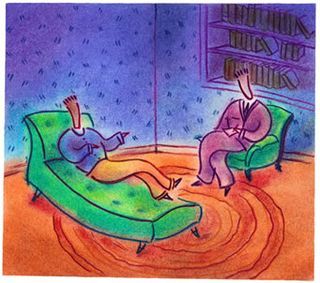Transference
BPD and the Effective Therapist
What are the characteristics of an effective therapist for treating BPD?
Posted May 25, 2015

Treatment of individuals with Borderline Personality Disorder (BPD) can be a difficult and demanding process. Many clinicians avoid involvement with this psychiatric group. Several standardized therapy approaches--including Dialectical Behavioral Therapy, Mentalization Based Therapy, Transference Focused Therapy, Schema Focused Therapy, and others--have developed manuals to guide clinicians in delivering consistent, effective treatment. Unlike medications, which generally produce a predictable physiological effect between drug and patient, the interaction of therapist and patient may be more complex. The effect of the medicine is unrelated to which pharmacy packaged the doses. But which therapist, closely following the manual, delivered the care will have a greater impact on the patient.
The approach of an effective therapist must address the contradictory nature of borderline patients. Individuals with BPD experience extremes of black-or-white, all-or-none, good-or-bad. Helping the individual resolve the contradictions and develop an in-between, middle-of-the-road conception can settle some of the severe mood swings and impulsive behaviors. The qualities of an effective therapist may also involve contradictory characteristics that must find an effective in-between.
The effective therapist must be consistent, yet flexible. Clear limits must be established in order to help the patient understand the parameters in which therapy takes place. Yet within these boundaries, flexibility to address specific needs is necessary.
The therapist must be directive, yet collaborative. Behavioral approaches can not be successful without the patient’s participation.
The clinician must be empathetic, but emphasize the patient’s responsibility for his behavior.
The therapist expresses acceptance of the patient for who he is now, yet works to induce improvement. (This is the primary dialectic in Dialectical Behavioral Therapy.)
The effective therapist projects confidence, but accepts limitations, and acknowledges constraints and errors.
Other characteristics of an effective therapist include self-awareness, self-discipline, and resilience to maintain a consistent dedication to a patient who may be severely demanding and challenging. Maintaining a sense of proportion, along with a sense of humor, can be protective for the treater. Perhaps most important, the effective therapist must have a sturdy support system that includes family and friends outside the office and access to consultation with other clinicians.


